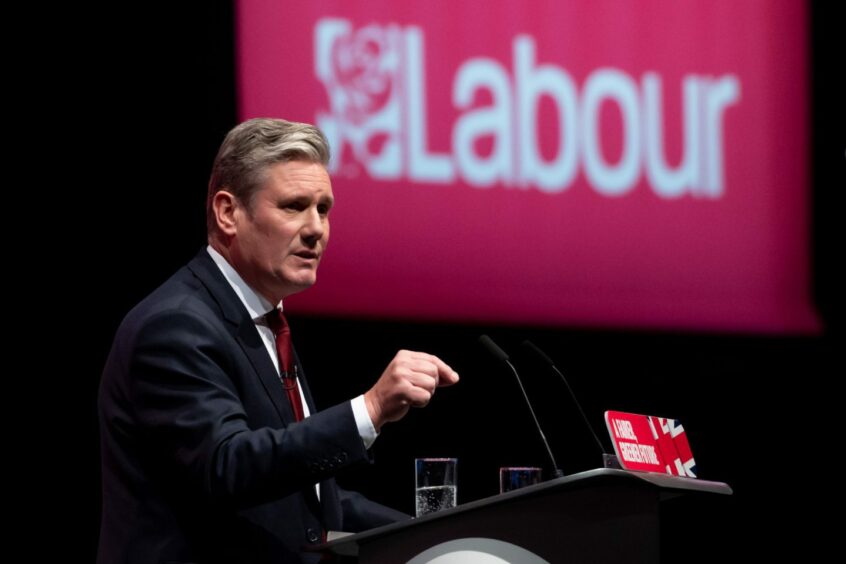
A month is indeed a long time in politics. Since I last wrote here, we have a new Prime Minister, a crashing pound and an unprecedented scale of intervention in the energy markets in an effort to stave off the worst impacts of impending price rises.
Earlier talk from Ms Truss of “no more hand-outs” might as well belong in another century as reality closes in. Whether the promised cap on energy bills is sufficient to prevent business closures and immense personal hardship remains very much in doubt.
In the longer term, the most significant announcement of recent weeks could prove to be Sir Keir Starmer’s commitment to create a state-owned Great British Energy company within the first year of a Labour government. Like all promises made in opposition, it will only be worth anything if Labour can actually gain power.
Most observers would now place that in the category of “possible” or even “probable” but by no means certain. However the success of Labour’s conference, and particularly Starmer’s main speech, against the backdrop of economic chaos created by a Tory government that shows little sign of knowing what it is doing, certainly advanced the cause.
Perhaps the most powerful indicator of a changing mood was the absence of criticism directed at Starmer’s announcement. Any other times, there would have been cat-calls about “the bad old days of nationalisation” and a general rubbishing of the idea that the state has a key role to play in the wondrous workings of the energy market. Not now.
It has taken an energy crisis to remind the country that ultimately the state is responsible for security of supply – otherwise known as keeping the lights on – and cannot abdicate that role to any other agency or interest. That responsibility extends to the lights of poor people as well as the wealthy and to small businesses as well as large ones.
As long as energy was cheap and the system working moderately well, it was tempting to forget this fundamental role of government. The default position that “gas will always be cheap and available” was used to cover all bases. Only when that mantra evaporated with remarkable speed did the residual truth about the duty of government come back into play.
Starmer has recognised in a practical, non-ideological way that, on many fronts, the state must be a more active player. This does not mean mass nationalisation which would be both unaffordable and impractical but it does mean creating an agency through which the state can pursue its defined goals as a participant rather than spectator.
In my view, it should also involve re-establishing a separate Department of Energy in Whitehall as recognition of just how important the subject is. It was got rid of under Mrs Thatcher to symbolise the fact that energy was now at arms-length from government due to privatisation. The exact reverse message would be appropriate now.
Direct state involvement is the least we should get in return for the vast sums now being used to subsidise energy companies in order to protect consumers. That mechanism alone raises all sorts of questions about whether it is the most efficient way of addressing a scenario in which fortunes continue to be made at various points in the energy chain off the suffering of millions.
In his conference speech, Keir Starmer said Great British Energy would be “a new company that takes advantage of the opportunities in clean British power … because it’s right for jobs, because it’s right for growth, because it’s right for energy independence from tyrants like Putin”. Comparing it to EDF in France or Sweden’s Vattenfall, he said it would provide additional capacity, alongside the private sector, and its goal would be to establish the UK as a “clean energy superpower” to guarantee long-term energy security.
This formulation leaves plenty scope for fleshing out its role in advance of a General Election and the energy industries should work with Labour to develop that thinking. There is a great deal of relevance to the work on transition that is already happening around the North Sea and could be accelerated with the state company as an active player.
There are other equally fundamental issues raised by current events. They have highlighted for example the quite extraordinary way in which payments to other forms of generation are linked to the price of gas. Maybe there was a rationale for that at some point but it is very difficult to see one now. The current cost to consumers of this linkage is eye-watering.
Another area of interest might be to establish direct benefit for UK consumers from domestic oil and gas production. There is no holy writ forbidding a connection between the two and there would be a lot more support for maintaining North Sea production if there was a clearly understood impact on what people pay in the UK, a link which currently does not exist.
The North Sea industry should not be diverted by gung-ho talk about issuing a hundred licences from the balanced approach to transition that it had previously adopted. Jacob Rees-Mogg is not the answer to its prayers, nor indeed to anyone else’s. There is a completely rational argument for maintaining North Sea production so long as environmental criteria are met, so just stick with it.
The last month teaches us that the political climate can change very rapidly and it would be inadvisable to be blown off course by forces that may prove to be equally short-term.
Brian Wilson is a former UK energy minister
Recommended for you
